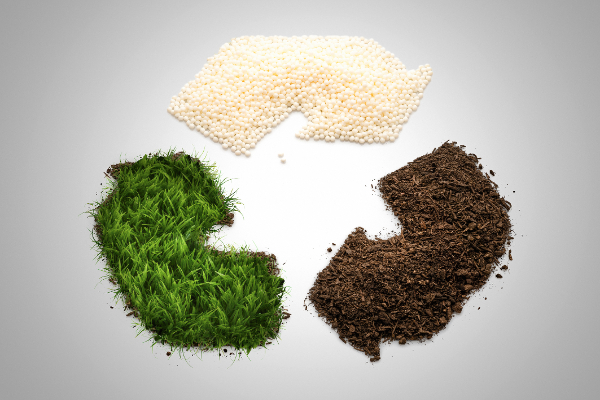Biomass-balanced ecoflex helps the packaging industry increase the use of renewable feedstock

BASF is now offering the packaging industry a way to increase the use of renewable feedstocks: It is expanding its portfolio of certified compostable biopolymers to include a biomass-balanced (BMB) ecoflex, a polybutylene adipate terephthalate (PBAT) that is frequently used in the compounding of biopolymers. For the new ecoflex F Blend C1200 BMB, the fossil raw materials that are usually used in the production process are replaced with renewable feedstock at the beginning of the value chain.
The renewable feedstock comes from waste and residual biomass and is attributed to the ecoflex grade via a mass balance approach which is certified according to REDcert2 and ISCC PLUS. The biomass-balanced ecoflex not only contributes to reducing the use of fossil resources, but it also offers a 60% lower Product Carbon Footprint (PCF) (2) than the standard ecoflex F Blend C1200.
With ecoflex BMB, BASF closes this gap and offers a solution that is organically recyclable at the end of life: In addition, its fossil feedstock is completely replaced with renewable raw materials at the very beginning of the production process. BASF is thus taking another step towards closing the biological loop of circular economy.
The BASF PBAT is identical to the conventional grade in properties, quality, and certification. As a result, customers do not need to re-qualify their applications made of ecoflex BMB, reformulate the compounds or adapt their existing manufacturing processes: They can rely on the same performance to which they are accustomed and benefit from a drop-in solution. “As a pioneer of biopolymers, we are continuously striving to support our customers in the transition to a circular economy with renewable resources”, says Marcel Philipp Barth, head of global business management Biopolymers at BASF.
“Our ecoflex® BMB, an industry-first on the global biopolymers market, advances the sustainability efforts in the packaging industry by reducing the use of fossil resources, decreasing greenhouse gas emissions, and driving the use of renewable feedstock derived from organic waste and residual biomass. In this way, we help our customers make informed decisions about product design, thus shaping a more circular packaging value chain.”
Subscribe to our newsletter & stay updated.